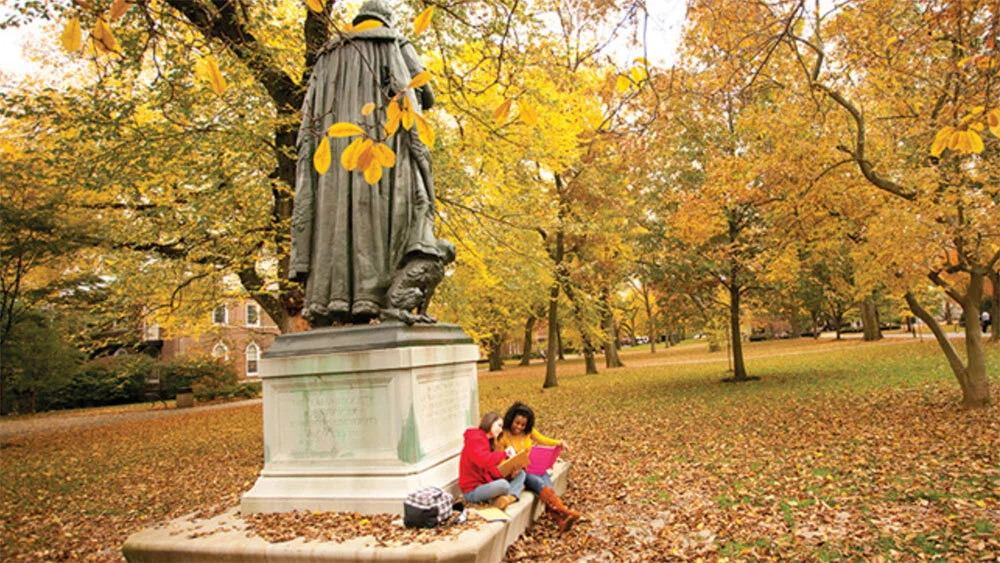Advice from Coalition Schools
For more free, college-planning tools connected with our easy-to-use application:
Everything You Need to Know about Admissions Deadlines
As a high school student, you are all too familiar with deadlines: essay due Jan. 15, lab report due Feb. 2, final project due April 30. These are firm dates when you submit your materials and — phew! —you’re done.
No Major? No Problem!
No idea what you want to pursue in college? Have so many interests you can’t pick just one? Don’t worry, there are colleges where “undecided” is the most popular major among first-year students!
There are plenty of colleges where you can be undecided or undeclared upon admission. Typically, you will take core classes that allow you to explore various subjects and see which ones spark your interests. Often it is not until the end of your sophomore year that you’ll need to decide on a major. You will have plenty of time to figure out who you really are and what you really want.
The Benefits of a Liberal Arts Education
Never has it been more difficult to predict what life will be like in 20 years, or what careers will be in demand in the future. Careers we haven’t even thought of yet will emerge, and old careers will be transformed.
You do not need a very specific education for a particular job that may or may not exist or be in demand in 10 or 20 years. You need instead an education that empowers you for success and allows you to design your own future in our rapidly changing society and economy.
How To Write — And Not Write — A College Essay
People often ask me about the value of the application essay. “You don’t actually read all of them, do you?” I assure you, at my university and in admissions offices across the country, we do.
I can tell a lot about a person from his or her application essay; it’s the most current snapshot of who you are as a person. Think about it: Most of the items you submit to the colleges or universities you’re applying to showcase talents that you have developed over a long period of time. Your high school transcript contains at least three years of grades, showing evidence of hard work in a variety of subjects. Your clubs, organizations, sports, community service, and other accomplishments reflect years of participation and dedication to fields outside the classroom. Even your good old SAT or ACT scores reflect the accumulation of vocabulary, mathematics, and reading comprehension talents acquired throughout your life. The essay, however, is who you are right now. So, why not get started . . . right now?
Pro Tips On Writing Your Personal Statement
We know that writing your essays can seem especially daunting when applying to college. But the essays are a great opportunity to add depth to something that is important to you and address a topic you’re not able to cover elsewhere in your application.
The essays reveal how you learn, what you value, or how you approach challenges, which helps the admissions committee imagine how you might approach the living and learning environment at their school.
Value of your fee waiver
As you probably know, college application fees can really add up. In fact, the average application fee is currently $50 — and some schools can charge as much as $90. Multiply that by 6-10 schools, and you’re looking at hundreds of dollars just to apply.
Good thing we’re here!
Questions to expect at your college interview
So, you have a college interview coming up … congratulations!
This in-person or online meeting with a representative of the school you’re considering is a great opportunity to showcase you: the person behind the application. And the best way for you to shine during your interview is by being honest, confident, and prepared.
Preparing for a College Interview
Many (though not all) colleges and universities interview students as part of their application process. It’s a way for them to learn more about you: the person behind the grades, essays, activity listings, and recommendations you may have already submitted.
Your interview will likely be with someone from the admission office, a current student, or a graduate of the college. It might take place at the school, at a nearby meeting place (like a coffee shop), or online through a system like Skype or FaceTime. In any case, think of it as an opportunity to show that you’re so much more than the paperwork you provided.
Deciding where to apply
You’ve done the research and created a college list, but now you have to decide: Where do I apply?
At the Coalition, we’re here to help you make smart choices when it comes to applying to college, and your first choice should always be: Apply to more than one school! In fact, we recommend applying to 6-10 schools, because applying to college means applying to colleges — and we encourage you to consider Coalition schools because of their commitment to access, affordability, and success.
Researching Colleges
Now’s the time to start thinking about colleges. But which ones?
Do you want a small liberal arts college on the East Coast? A big football university in the Midwest? A midsize engineering school on the West Coast?
Your college search means finding schools that line up with your interests, academic abilities, and future goals. There are thousands of schools out there, but only a few will be right for you.
Building a College List
Did you know? Applying to college means applying to colleges, plural.
In fact, we recommend you apply to 6-10 schools, so your list needs at least that many schools, in order to give yourself the best opportunity to make smart college choices.











